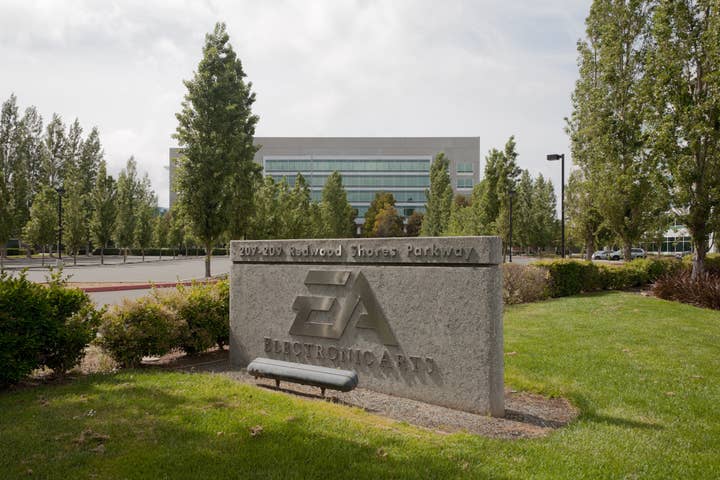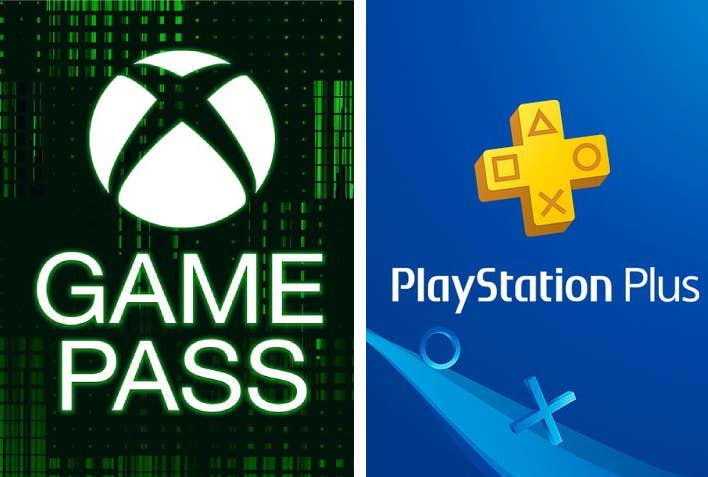Is there an end in sight for the industry's merger mania? | Opinion
Enormously expensive acquisitions of industry giants have become commonplace in recent years -- but economic factors may be about to stamp on the brakes.
It's apparent to even the most casual observer that the games business is going through an unprecedented spate of consolidations among major companies.
The acquisition of Zynga by Take-Two just set a new high water mark for the value of deals within the industry, but we already know that the record will be broken in the coming year when Microsoft's acquisition of Activision Blizzard King finally closes.
The trend isn't entirely new; one could argue that the current wave of consolidation began almost a decade ago when major publishers started buying successful mobile gaming firms in a desperate attempt to stay abreast of this enormous new market segment, and a variety of market pressures have kept the pace of major acquisitions high ever since then.
It's worth interrogating this trend more deeply, though, and asking why exactly it's happening right now -- and what, if anything, might bring it to an end.
This seems especially relevant in a week where we've discovered that Electronic Arts has been aggressively courting potential acquirers from across the media and technology markets, while Ubisoft apparently has a price tag in mind should anyone come knocking, though the Guillemot family is also floating the idea of taking the French publisher private, which is either a fairly typically iron-fisted move from the company's founders, a strategy to push potential suitors' valuations higher, or a bit of both.
This consolidation trend may have started years ago, but back then companies like EA and Ubisoft saw themselves as acquirers, not acquisition targets
Rumours about Sony following up its recently announced acquisition of Bungie with a buyout of a major Japanese publisher also continue to swirl, with Square Enix being a name frequently mentioned -- though it's honestly hard to tell whether its recent jettisoning of its overseas studios and IPs was an attempt to make itself more attractive for such a deal, or to dissuade interest (though dumping a bunch of valuable IP that Sony could undoubtedly have done superb work with would be a hell of a way to flirt).
So -- why now?
This consolidation trend may have started years ago, but back then companies like EA and Ubisoft saw themselves as acquirers, not acquisition targets -- the fact that they and other companies of similar scale are now not only on the auction block but enthusiastically pursuing such deals signals a major shift in the industry.
To some extent, of course, a fire has been lit under these publishers by the Microsoft buyout of ABK. That deal has raised the potential for such a hugely valuable exit -- think of how many people are going to be getting huge payouts when that deal concludes!
But it also has other potential partners putting their house in order on the off-chance that something happens to upset the ABK deal, leaving Microsoft potentially in the market for a different publisher to bolster its Xbox division (for all that the deal is very likely to go ahead, is not a total fait accompli, as indicated by the fact that ATVI stock continues to trade at a valuation somewhat lower than Microsoft's buyout price).
This doesn't provide a full and satisfactory explanation, however, not least because Ubisoft and EA have reportedly been shopping themselves around since well before Microsoft's bid for ABK came about. Neither does the heating up of console war competition between Microsoft and Sony fully explain the consolidation trend, though it is clearly a factor.

This is the first console generation ever in which both companies have come out of the gate strong, haven't stumbled in the opening stretch (supply chain issues notwithstanding), and have really competed hard for market share at the same time.
That situation has, in part, driven Microsoft to make some big purchases, and Sony, over the years, has built its own impressive stable of studios through acquisitions of development partners, with the upcoming Bungie buyout being the biggest deal thus far.
The emerging and rapidly growing importance of subscription services is putting immense pressure on the business models of companies across the industry
Nonetheless, this isn't the most important factor at work here -- because there are two other major factors which are driving consolidation right now, and the status quo of one of them actually suggests quite strongly that there's a time limit to the current acquisition spree.
Firstly, the emerging and rapidly growing importance of subscription services is putting immense pressure on the business models of companies across the industry -- perhaps not today, but enough to give executives sleepless nights when they start thinking about tomorrow.
Game subscription services like Game Pass and the new PlayStation Plus have the potential to vastly increase the industry's revenue overall, but will also concentrate it in the hands of a pretty small number of major players.
This is a very different paradigm to the existing system of platform holders and third-party publishers; streaming services give users a fixed monthly cost and a single point of payment, and whichever companies manage to position themselves as the gatekeepers for that revenue flow will be dominant to an extent that even console platform holders have not been thus far.
Indeed, this is one of the underlying factors that's making the console war in this generation so hotly contested; subscription models make it vastly harder for console platforms to successfully coexist, because while many gamers might happily end up with all the major platforms under their TV by the end of a generation, they're far, far less likely to end up paying a monthly fee to all the major subscription services.
Driving a market polarisation between PlayStation and Xbox is merely the tip of the iceberg, though, since further down the line we can easily imagine that other forms of media streaming services will start to be bundled together by increasingly ambitious players like Amazon and Apple, creating ecosystems that include gaming as part of a whole range of services and entertainment.
Smaller companies don't have much of a chance of standing up to that kind of competitive environment, if that is indeed how the business model goes -- and almost every firm seems to be betting pretty heavily that this is the future that's coming down the line. "Small" in this context is relative; it could easily mean a company worth billions or even tens of billions, who are mere minnows compared to the behemoths that will be duking it out at the head of the pack.
Companies hoping to be acquired in the near future may need to temper their expectations regarding valuations
The current struggle facing Netflix in streaming video is an interesting case study in a supposed market giant and industry leader finding itself under serious pressure from the arrival of true giants in its field; for all that Netflix has made some significant mistakes (most notably in its content strategy), the fact that its first mover advantage has been eroded so seriously by the market entry of companies like Disney, Apple, Amazon, and Warner should be setting warning lights flashing in any other industry that seems likely to move towards this kind of model.
If you're watching that from the C-suite of a games industry firm, those warning lights would lead you to at least seriously consider seeking the safety of either being acquired by a major player, or attempting to form a more major player of your own through consolidation.
Secondly, it's also important to look at the broader context of company valuations overall in the past few years -- which have been, frankly, insane, with many technology firms in particular trading at valuations relative to their income and profits that are more than an order of magnitude higher than historic norms.

If valuations haven't been in a bubble, then at the very least they have been irrationally exuberant -- and that means that there's been a ton of money (or at least, shares with a hypothetically enormous monetary value) sloshing around in the markets, driven at least in part by the loose monetary policy and historically low interest rates pursued by the U.S. and several other major economies in recent years.
Those kind of valuations make acquisitions easy and hugely attractive, because the money is available (and western companies, at least, would prefer to put it to work than squirrel it away) for buyers, while for sellers, the potential prices being discussed are so much higher than even the most optimistic valuation for a company just a few years ago. If the deal is a cash deal, like Microsoft's bid for ABK, all the better, but even a stock deal can look incredibly tempting when the headline numbers are so hugely inflated.
This, however, is where the brakes may be being applied to the consolidation spree -- bringing valuations back down to earth and perhaps cooling down the pace of acquisitions overall.
It's too early to say for certain, and it's possible that market upsets will lead to more dovish sentiments prevailing in U.S. monetary policy in the coming weeks and months -- but the balance of probability is that the rise in inflation rates around the globe has probably brought an end to this expansionary period, with developed nations now focused on combatting inflation by raising interest rates and tightening the money supply.
The era of Chinese money flowing into overseas acquisitions in this space may also be drawing to a close, or at least a pause
That's a high-level policy change, but it'll have a very real knock-on effect on the games business because it will deflate a lot of the valuations involved in acquisition deals -- not just the potential valuations of the companies hoping to be acquired, but also the market valuations of the major companies who might wish to acquire them.
This latter point is a big deal both practically, in that it makes it harder to use shares to fund an acquisition, and psychologically. There's a major difference between buying a large game publisher when your own company is worth $350 billion, versus doing the same deal when your firm is worth $180 billion, even if in real terms that stock valuation doesn't reflect anything significant about the size of your business, your income, or your profits. Those valuations, incidentally, are roughly the difference between Disney at its share price peak last year, and Disney at the time of writing.
The impetus to consolidate before subscriptions start to dominate the industry and squeeze out any firm without the scale to compete isn't going away -- but the loose monetary policy which permitted the huge price-tag acquisitions of the past few years may well be on the way out, at least for a few years.
On the sidelines of this, China's huge game firms -- notably Tencent, whose acquisition spree in the past decade drove a certain sense of panic in some boardrooms, and a rush to pick up desirable companies before they were all snapped up -- have seen their valuations decline dramatically in the past year, and the era of Chinese money flowing into overseas acquisitions in this space may also be drawing to a close, or at least a pause.
Companies hoping to be acquired in the near future may need to temper their expectations regarding valuations -- and for those used to gazing at ever-inflating market cap figures with gleaming dollar signs in their eyes, that may turn out to be too bitter a pill to swallow.

